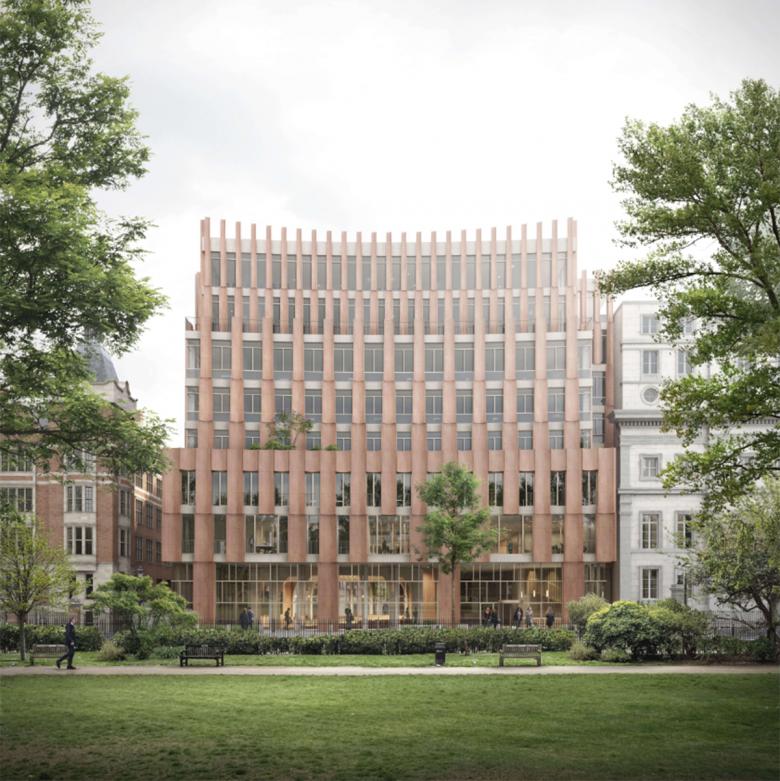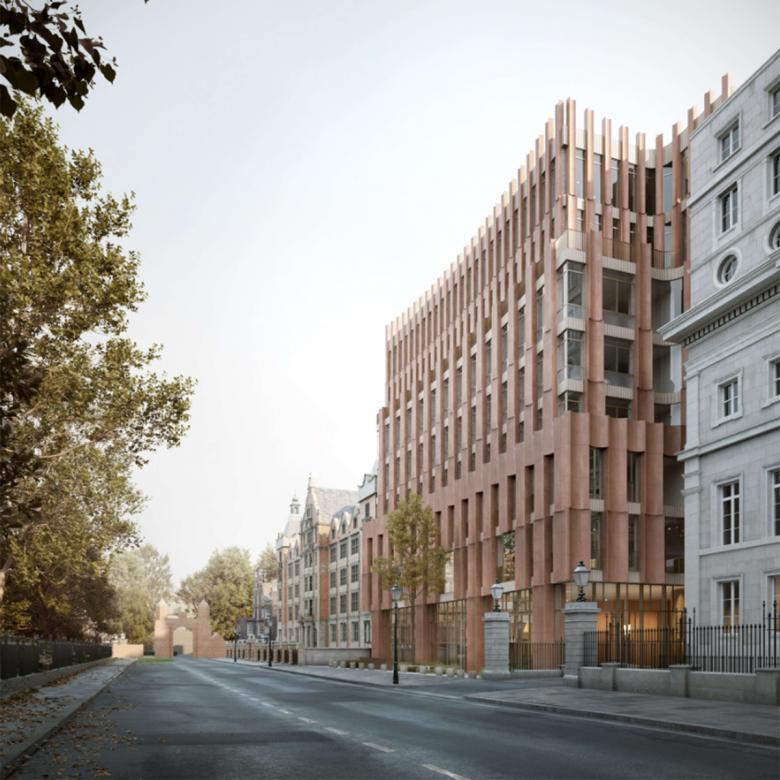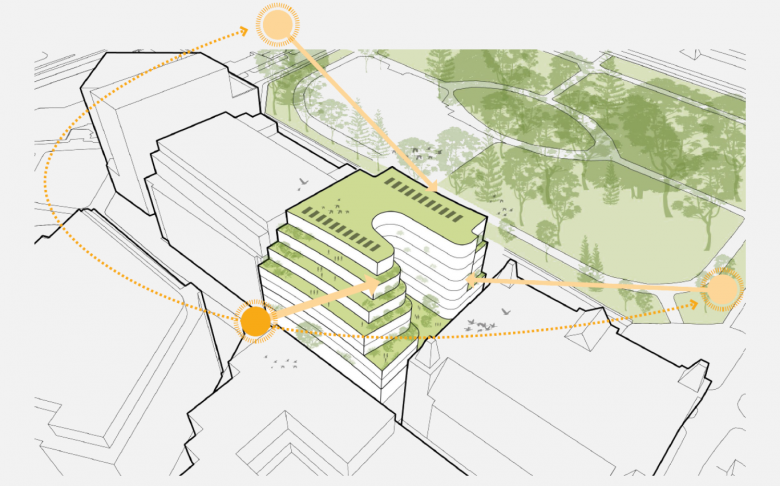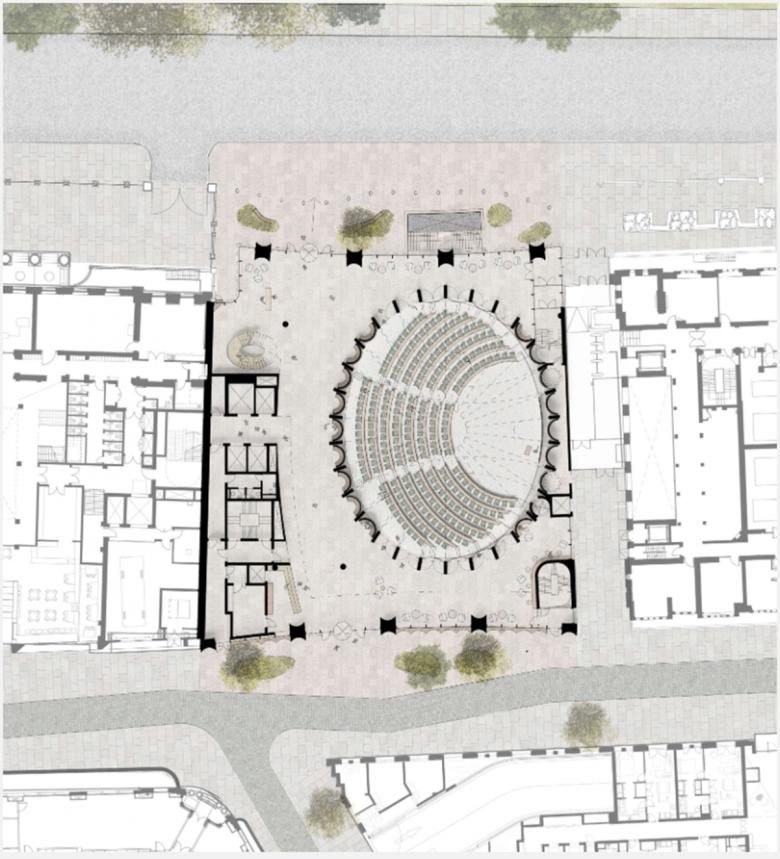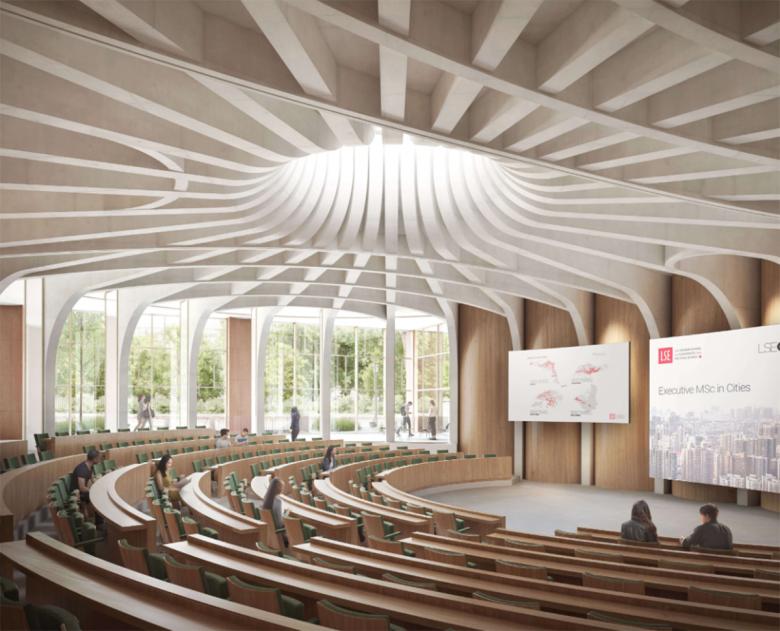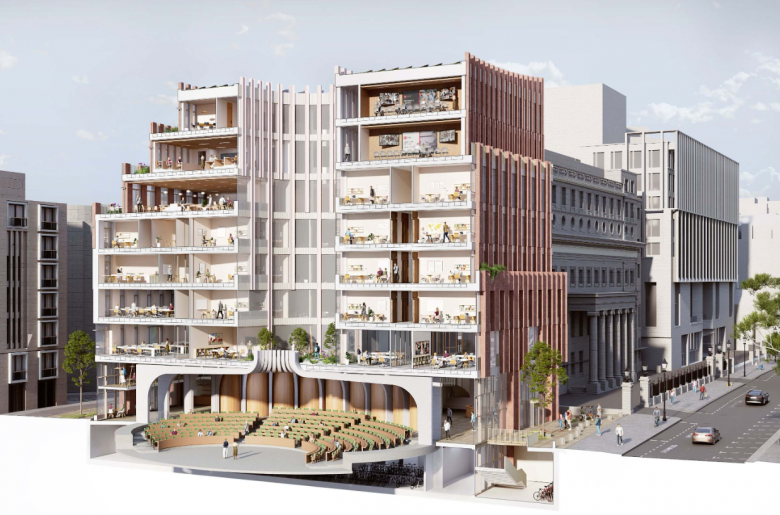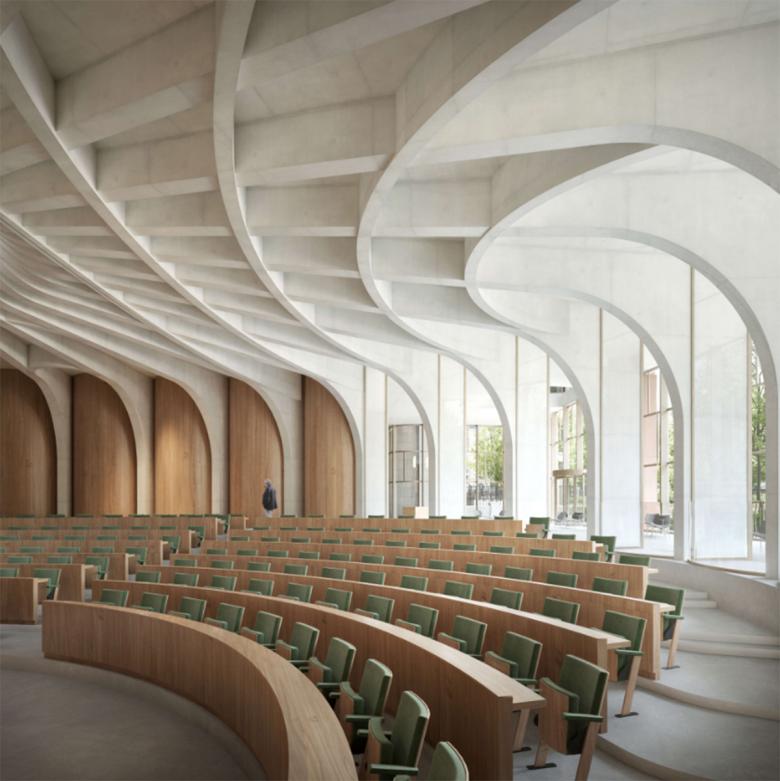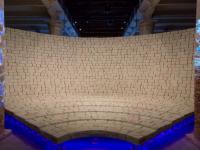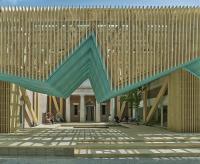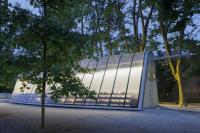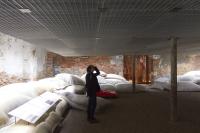London School of Economics | Firoz Lalji Global Hub
London, Great Britain
Our shortlisted entry for the Firoz Lalji Global Hub and Institute for Africa is in collaboration with award winning London-based practice Alison Brooks Architects (ABA) who invited Studio Contra to participate with them in the design of a new landmark and final set piece project for the London School of Economics at their central London campus. Consultants included AKTII (Structural Engineers), Skelly & Couch (Environmental Engineers), Charcoalblue (Theatre and Acoustics) and others. Studio Contra and ABA were among six finalists chosen to prepare a design from almost 200 international submissions of expressions of interest.
The new building accommodates teaching spaces, faculty offices, seminar and meeting rooms as well as an Institute for Africa and world-class Executive Education facilities with a private restaurant on the top floor. At ground level there is a public lobby with a café and 300-seater Agora; a visionary new space designed for public, professional and academic gatherings within and beyond the LSE.
Our proposal aims to subtly express the cultural, economic and environmental significance of Africa in one of London's most prominent civic spaces, Lincoln's Inn Fields in synthesis with the immediate context. Drawing from architectural traditions of Africa and the global South the building aspires to the highest standards of environmental sustainability through its material palette, embedded technologies and formal composition. The open C-shaped massing faces east around a central courtyard, allowing natural light and air to reach each office, meeting room and teaching space, thereby eliminating the need for mechanical ventilation in the majority of the building and dramatically reducing operational loads. On the façade, fluted terra cotta cladding elements signal the clay-based architectural traditions of Africa while operating as 'solar chimneys': a technological innovation which will passively ventilate the perimeter rooms through these hollow flutes in both winter and summer months. The environmental design of the building promotes high standards of wellbeing and an equitable experience for all users.
Facing the historic Lincoln's Inn Field, the north side of the building is expressed with a symmetrical and balanced façade in the manner of a palazzo. The façade is subtly curved in a soft gesture of urban embrace. The stepped massing, rising to nine stories, emphasizes rootedness and heft without overly imposing on its surroundings. South-facing outdoor terraces at multiple levels are capable of supporting planting, encouraging biodiversity and access to nature throughout the building for students and faculty to enjoy.
- arkkitehdit
- Studio Contra Ltd
- Location
- London, Great Britain
- Client
- The London School of Economics & Political Science
- Structural Engineers
- AKTII
- Environmental Engineers
- Skelly & Couch
- Theatre and Acoustics
- Charcoalblue
